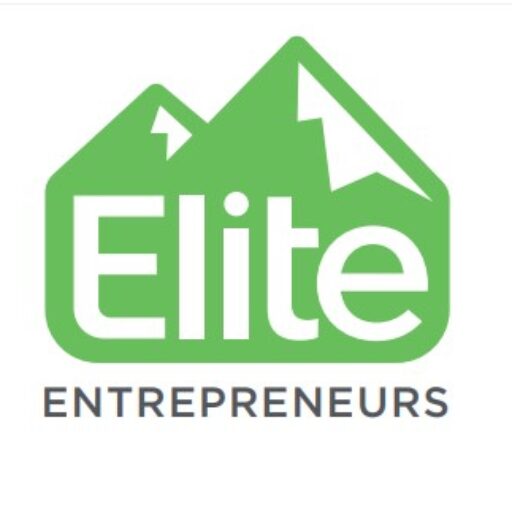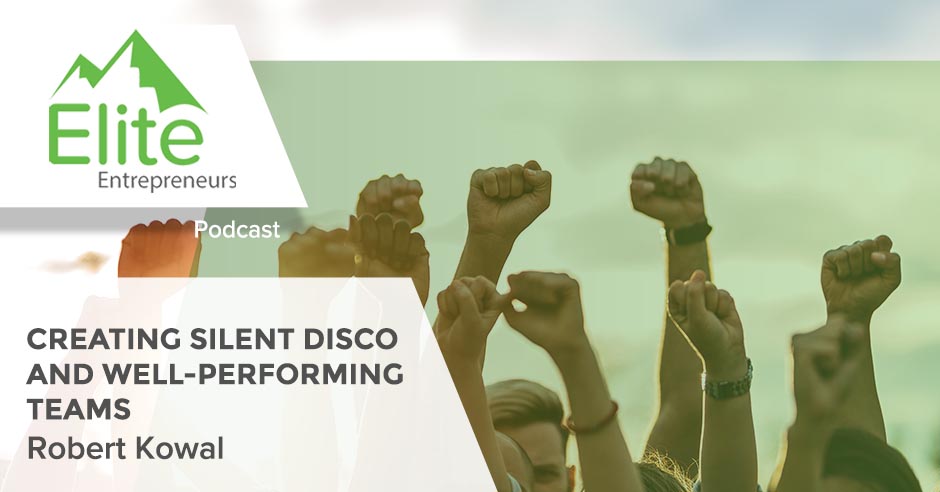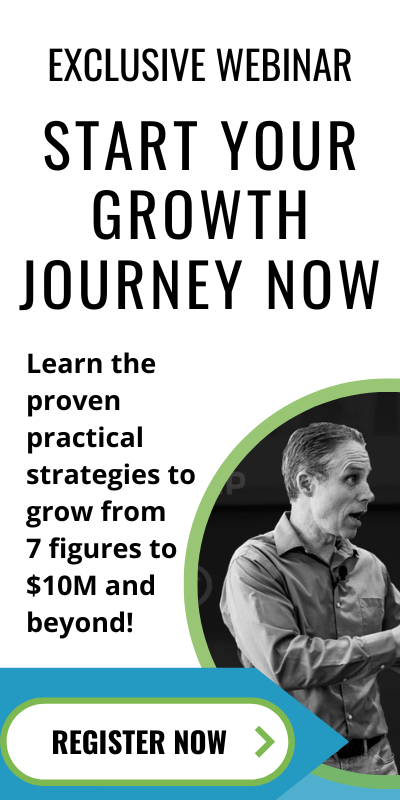Episode 150: Creating Silent Disco And Well-Performing Teams With Robert Kowal
Events with booming music typically attract complaints from your neighbors and nearby establishments because of the loud noise. If you still want to push through your event but without having to get rid of music, opting for a silent disco is a good idea. Brett Gilliland sits down with Robert Kowal to share the story behind HUSHconcerts, as well as his strategies for building efficient and deeply connected business teams.
> What the podcast will teach you:
- What does a silent concert look like and how it is possible
- How to apply the same model to corporate events
- The challenges of business partnerships
- How to keep a team loyal, inspired, and connected
- How to create the sense of “we”
- The difference between personal growth and performance
> Resources:
- https://www.facebook.com/HUSHconcerts/
- https://www.linkedin.com/in/robbie-kowal-658296237/
- https://growwithelite.com/
—
Watch the episode here
Listen to the podcast here
Those of you who have made it to that million-dollar mark and have a growing team know how challenging it can be as the business starts to outgrow your own personal capacity to hold it all together. We bring in people like you who’ve gone through some of those changes and share some of those lessons learned.
I want to introduce to you our guest. His name is Robbie Kowal. He has been a force in the business of music since the 1990s. He’s been a musician, producer, creative director, and innovator in the use of audio technology to solve real-world challenges. As we get into learning more about his business, which is called HUSHconcerts, you’ll find that they do something super innovative. I’m excited to have him share that, then we’ll get into some of the lessons that he has learned as a business owner.
Let me tell you a little bit more about Robbie. He was a prolific touring DJ in the early 2000s. He was asked in 2005 by Bonnaroo Music & Arts Festival to play the US’s first silent disco, which I think is interesting and must have been the path to this HUSHconcerts ideas. Let’s have you, Robbie. Let me welcome you. Thank you for being here.
It’s great to be here. Thank you.
Why don’t you tell us a little bit about HUSHconcerts? What I’m assuming is the path from that first silent disco to what HUSHconcerts represents today. What are you guys doing?
A lot of people consider that they’ve had moments in their life where they look back and say, “It was all meant to be because I was there at that time. I was very fortunate.” Simultaneously, all these different things were going on. I was a concert promoter in San Francisco. My company, Sunset Promotions, was producing a jazz festival. We were in a battle with the city with a group of angry nimby neighbors who wanted to shut down this free jazz festival. They were using noise as the impetus to get us to shut the event down.
At the same time, I was at Bonnaroo, DJ-ing at the festival, when they brought silent disco to America. We put two and two together and say, “Headphones with no loudspeakers can solve problems for folks like us.” We didn’t end up solving that problem with headphones there, but it immediately made me realize that there were dozens of hundreds and subsequently, I’ve met thousands of people who are having challenges with angry neighbors around audio, and nice neighbors who are having challenges with people who are making too much noise around them.
It’s not always the angry neighbor. We’re all in this thing together. The headphones were one of the ways that we launched our company, HUSHconcerts, as a way to help people solve these problems. We’ve been in business for two decades but focused on the headphone side of the business and the sound mitigation, event audio challenge problem-solving side of the business for about a decade now. I can’t even tell you how many people we’ve helped and how much fun we’ve had along the way.
It’s a fascinating business. Before we get into some of your lessons learned as a leader in that business, give people as vivid a description as you can about what it’s like to be at a silent music event or a silent concert. What does that look like? What happens to make that possible?
The fascinating thing is that the headphones are just a tool. You can use them for concerts. They’re most traditionally known as silent disco. Usually, when you think of a silent disco, there would be three DJs on stage. You’re out in the audience dancing to three different types of music. You could switch your headphones from this DJ playing that to that DJ playing that to this DJ playing the other thing. If you think about a wedding where the parents don’t like what the kids are playing and the kids don’t like what the parents are playing, it solves that problem instantly.
In a lot of our concert settings, we will program and curate up to five different streams of music, sometimes as many as five live performers at a time. At one festival that I do the curation and booking for, I can have up to 30 people on stage in the course of an evening. It’s a lot of work and outrageous, but the musical experience for the attendees is eye-opening. What’s cool also is to walk by and you hear all these people dancing, talking, and enjoying themselves. They’re losing their minds in this false anonymity of bliss, but you don’t hear the music.
You have to go check it out. If you stand in the line as we’re passing on the headphones as people are walking, the second they put them on, there is a huge smile on their faces. That’s HUSHconcerts. That’s one whole side of our business. We have this whole other corporate product called Silent Conference. We’re doing a similar thing with the headphones, but it’s at trade shows and corporate meetings.
A good example is I was down in Panama, where they were doing two track sessions in the same ballroom at the same time. They had four people on stage speaking three languages in these panel discussions. We had translators translating Spanish to blue, English to green, and Portuguese to yellow. The main feed was not only on the loudspeakers but also on your headphones.
We had the translators. We had to coordinate it all. We had eight channels of RF going out with 1,200 headphones in a foreign country. It was an enormously complicated challenge, but that’s an example of the things we can do on the corporate side. We’ve done 35 rooms at Moscone Center for Oracle. We’ve done 10,000 headphones at a concert. It has been a fascinating experience to help turn that initial DJ experience into a whole world of solutions for folks who need it.
It’s fascinating to me. I can just sit here and listen to all the examples you are sharing for a long time. Like many of the business owners that I get to talk to, you have a craft. You’re a master at a certain thing. That was music and music production for a long time. It’s AV that supports that world, but you also are a business owner.
As you’re trying to grow your business, you’ve had to learn some things about how to grow the business that is not more complicated necessarily but different than the craft that you’ve honed for so many years. You’re now trying to figure out how to do this business-building work. Let’s talk about some of the challenges that you’ve had in doing this work and bringing the business as far as you have. What are some of the standout challenges that you’ve faced as you tried to grow this business?
We do it the hard way. We were bootstrapped from the beginning. As promoters, we’re essentially professional gamblers betting on bands, shows, and events. Sometimes we walk away not having made money for all our work, and having lost money. I lost six figures on a show twice and did not have Live Nation behind us. Once we transitioned to a more stable model where we were essentially a vendor, we were getting hired by concert promoters and conference producers, it stabilized our business model quite a bit, but then the challenge became a lot of the same things that every other entrepreneur has to do.
You have to hire a sales team. You have to hone and hire a marketing team. You have to think about HR. We had to write our first employee handbook and all of these things. Back in 2016, we had our first incredible Angel investor who is still with us and still my partner. I had business partners as well for all that time until a few years ago. We were 50/50 partners. In talking about a real challenge, one of the challenges is even though we’re still the best of friends and we grew up through this business like brothers, when you’re a 50/50 partnership, it’s hard to make a hard decision sometimes.
We would have to marinate on these things back and forth. It slowed us down sometimes. That was a big challenge. I cannot tell you how much I still love that gentleman. John started in a different company and left a few years ago. The challenge became, “I’m it. I’m in charge. Am I ready? How do you become the guy? What is the CEO?”

Silent Disco: One of the biggest challenges of a 50/50 business partnership is to make hard decisions and marinate on them back and forth.
I did everything I could to learn. I crash course it. Even with that, every day is a new thing I could never have expected and a new challenge. One of the great things about having that part all those years was I never had to worry about staying motivated because if I slacked off he let me know and vice versa. Now, there’s only one person at the top. You have to push yourself to keep your head in the game. That would be a big challenge. Being alone at the top is a challenge as well.
That’s a prevalent enough reality for many of the folks in this seven-figure space. I’d like to spend a minute longer on that if you don’t mind. How do you stay well? You personally stay well when you’re carrying that full weight. There’s one thing with 50/50. The decision-making might have been a little trickier, but at least there was somebody else helping you to carry it. You can make quicker decisions, but the full weight is on you. How do you keep yourself in the game mentally, emotionally, and even physically if you want to touch on that when so much is on you?
Staying positive about the business now isn’t that hard because of what we went through in the pandemic.
Let’s talk about when it was hard.
If you’re in the event industry and there are no events, there is no industry. There was a moment where we had to come to Jesus as a company. We were like, “Are we looking at bankruptcy or are we going to try to fight through this?” We found a way to fight through it. We all took unemployment and it turns. What’s amazing is throughout that entire experience, nobody left. We kept the entire team together. We made sure everybody was taken care of. We transformed the company from a group of people who worked together into what I think of without any hyperbole as my family.
We’re a small team and we always have been, but that hard road transformed us into a family. We have family squabbles like any family would. There are times when you could say that I might be better off hiring a different CEO and stepping aside, or there are people in my company who I could probably find maybe somebody better to do their specific job, but I wouldn’t think of it because we are a family now.
If anything helps me survive and mentally overcome any doubts or motivations, anytime I have to do that, I can call up one of them and say, “I’m having trouble with this. What do you think?” There’s no mask of command in our company either. Everybody knows that I’m the first one to admit my mistakes. I want to teach people humility and accountability. It is incredibly important in our organization. It’s all about learning and teaching. Keeping positive and motivated, all I need to do is think back to three years ago. Had I known that we would still be thriving today, three years ago, I would have cried in happiness. We’re already playing with house money.
Leaders must be the first ones to admit their mistakes. This way, they can teach humility and accountability to everyone, as well as keep them highly motivated. Share on XNothing like a little contrast. Three years ago, that probably seemed impossible and dark. Now it’s a piece of cake, even though you still have challenges, squabbles, and all the stuff. Looking back, it’s way better now than it was. I could appreciate that.
It’s a whole bag of new challenges, but we’re still here.
You didn’t use these words specifically, but being in the trenches with people and coming to the other side of that brings people together in a way that it’s hard to replicate in normal circumstances. The fact that you guys went through what you did, came out of it, and you’re all still together is remarkable.
If I have a degree of professional pride, it’s in the loyalty I feel from the folks who are with us. I don’t know that they all like me. I know they make fun of me sometimes, which is fine. They’re all in this thing. We’re all part of the same mission. They’re all in it for the right reasons.
I would love to have you unpack that a little bit further. When you say, “They’re all in,” you talk about loyalty. You have a sense of professional pride or accomplishment around having created that level of connectedness with these people. I don’t imagine that you’re paying them twice the market rate. You talked about the power of mission. You use that word. I’d like to get underneath that a little bit more. How have you created a team that’s connected, united, and loyal because that happened?
It’s not easy and it hasn’t always been smooth. Part of it is this group of people, but we’ve also had groups of people that have had trouble in the past as well. Part of my experience in the music business was that we were always underfunded. We were always the bootstrapped little promoter and we were always up against the Live Nations in the world, so we had to do things cheaper and faster. We were using volunteers all the time to build events. Managing volunteers is very different from managing employees.
Volunteers are there because they want to be. The second they feel like you are bossing them around or treating them like, “You have to do this because I’m paying you,” they are going to leave. I had to learn how to lead and inspire volunteers rather than employing volunteers and tasking people. Sometimes, it was about showing them that I was willing to glue the cardboard together for the art behind the stage or I was willing to clear the dishes in the hospitality room or the green room. I was willing to move barricades of Portalets with my own toil.
Sometimes, I was the only one out there doing it, or John and I, my former partner. That inspires people to get involved. It also came out of years of waiting tables and bartending from when I was younger. If you have that spirit of service, teamwork, humility, and accountability instilled in you, it’s a lot easier to get other people to buy in. If you’re the first one out there moving barricades, everyone is going to jump in. They can see that the CEO of the company is getting there before everybody else and leaving after everybody else. That doesn’t mean that sometimes I’m not an event and say, “I’m bushed. I need to get home to my family. Can you guys close this out?” They’re fine with it.
There are other times that people are sick. They have to go home. I’ll stay late. That’s what it comes down to. It’s creating a system of humility, accountability, and honesty. That’s how you do that. When the pandemic hit, when it was dark, I didn’t BS anyone. I was very clear. I said, “I don’t know if we’re going to have a company in two months, but here’s what we’re going to try. Are you in with this? Do you have better ideas? Has anybody heard anything?”
Every week during those weekly meetings, when we were checking in, “How is everybody doing? Whose mortgage needs to be paid? Whose rent needs to be paid? Who is most in need right now? We will take care of them first.” Including me, I was forgoing income or whatever to keep them whole as best I could. It wasn’t always perfect. I’m sure I made mistakes. I’m sure we made mistakes, but we put all of us on the same plane at that time. I have worked very hard not to lose that.
There have been a few times when I’ve had to say, “I need you to go do this. I know you don’t want to do this, but I need you to do this,” but it’s never been like, “That’s what I’m paying you for.” That’s not how we speak. That’s now how we work. In general, most of the people who work for me are not motivated by money. We don’t pay what most technology companies pay. We pay a pretty solid production company rate for day rates and stuff.
I’ve worked hard to get those rates up. One of the things people appreciated was that in music production, vendor world, concerts, conferences, and stuff, a third of the people you meet are on salary. Most of the people are working day rates on gigs. I’ve worked very hard to get our day rates up to a competitive level with the rest of the corporate side of our industry. That’s been appreciated too. That would be one way to do it.
There are several things that you said. I want to highlight a few because I’m learning here as you speak and share. There was an important element around you not being too good to jump in and be part of the solution, not with the ideas but with the actual chipping in, “I’m going to approach this with the servant’s heart. I’m going to get in, be humble, and serve.” That speaks volumes and people are looking to your example more than what you say.
It’s not just about what you say but what you’re doing. They’re watching you to be completely connected and committed to getting this done together. I heard you use the word we a ton. It sounds like it’s “We” all over the place in your business instead of I and you. There’s this togetherness thing that you speak naturally. That’s important.
I love hearing you say, “Anything you can think of. It may be so natural for you and you don’t even know what you’re doing.” Aside from you jumping in and participating in getting work done, what are some other things that you’ve done to try to foster that sense of we, “This is flat here. No one is better than anybody else. We’re all in this together?” What are some things you’ve done to create that?
We had a retreat a couple of years ago, which we have never done. We got everybody that we could together out at this place out in the Santa Cruz mountains. We did some traditional retreat-type of stuff. That was important because we have a very distributed team. We have folks in Kansas City, New York, LA, and all over the country. We essentially have two types of staff. We have people that work the shows the production-type people, and then you have the people that support them either from sales, operations, HR, etc. It’s natural for there to be some rivalry and friction between those two teams. That friction was very toxic for us ten years ago at one point. It got to an ugly place.
I never want to let that happen again. We’re bringing everybody out together to just sit down, eat, and drink. We did some of the traditional stuff. We played disc golf and we did some ropes course stuff, but it was mainly to get everybody in each other’s presence for a while, even if it’s like a three-day vacation or whatever. That was huge.
Another thing for me was there’s a relationship counselor who is an amazing woman who helped my former business partner and me get through some tougher moments. She has helped my wife and I helped get through some tougher moments. I asked her to help me with some of my staff who were butting heads with each other to help them find their personal truth and speak their personal truth to one another in a safe space. It helped those folks get over the hump.
Being who they are and being the human beings that they are, they’re not always going to get along all the time. You may end up working with somebody that you don’t like, but you have to find a way to work together. You have to find a way because you’re trying to accomplish this mission. If you don’t like it enough, you’re free to leave. We found a way to do that.
I’ve been through so much in my life. There were so many struggles and so many personal hoops I had to jump through, and speed bumps that I had to get over that I sometimes see folks on my team and my family. I was never afraid to share those experiences to try to help those people evolve. Another thing I’m proud of is every single one of them has grown so much in the time they’ve been working with us. It’s not just as business people or in their work but I think about the personal growth and the work that these people have done. It’s impressive.

Silent Disco: People within your team will not get along all the time. Leaders must always find a way for them to work together so that they can accomplish their set missions.
I’m interested to know how you view the relationship between personal growth and performance, whether it’s at an individual level or collectively for how the business is doing. Do you see any correlation between growth and performance?
We’re a society of people with uneven parenting. We are a society of children of divorced parents, especially in the event industry. A lot of the folks in the event industry were there because they were the outcasts and the miscreants. They were the island of misfit toys. It was always the goth kids and the punks. I was always looking for waiters, bartenders, and caterers. Those are people who know how to make money $1 at a time by making people smile. If you want to learn customer service, go and work in a restaurant for a year, and then come to work for me.
We have a lot of folks who have had their struggles. That’s the nature of this industry. It’s not a bunch of people who went to Harvard and Yale and finished top in their class. These are people who had to hustle for every last inch. Sometimes, it’s hard to get those people out of that competitive mindset and into more of a team aesthetic.
I found the best way to learn how to overcome your own demons is to read biographies of other people who have gone through them. I share my personal demons with people as a way of helping them see, first of all, that it’s okay to share and be vulnerable with each other, but also that it’s okay to struggle. My dad used to tell me, “On your worst day, the people that are there for you are the people you want to keep by you.” When I’m seeing my staff on their worst days, I’m going to absolutely make sure I’m there for them, not as their boss but like, “What can I do? What do you need? I’m here. I’m just checking in on you,” whatever it is. A lot of them have stayed a lot longer than their profit-driving motive would indicate for that reason. They know they’re in a safe place. They know we have their back and likewise.
It sounds like personal growth is part of the equation. They’re seeing you value them as people. As they’re learning, growing, and developing on their path in life, you’re there along the way, supporting and encouraging. It sounds like you’re modeling that even, “Let me be vulnerable with all of you about my weaknesses and trouble spots and what I’m doing to overcome that.”
I was fascinated that you brought in a relationship person who not only helped you and your partner but you and your spouse, and then you brought her in to help with some team member relationships. This isn’t just about dollars and cents, “Here’s what I hired you to do.” It sounds like this is about you as a person. You can be a real human. We’re going to support and bring you into what we’re doing. You’re an important part of us. That’s quite a message you’ve sent.
So much of what you hear about business is to increase profit, reduce cost, and reduce friction and inefficiency. What is that interpersonal friction? What does that cost your company? What is that inefficiency? What is that one person who doesn’t like this other person or can’t work with them? How much time is wasted on inefficiency in those things? If you can get those two people into a place where they can at least be like, “I hear you. You’re right. That was dumb. I’ll try to do it differently next time,” from like, “You did this. You did that. You’re supposed to do this.”
If you can get them to a place where they’re at least empathetic with one another, it makes everything work better. It makes everybody want to come to work and work together. This is not Shangri-La or Kumbaya. We’re still some salty old music industry types. We still make fun of each other. I’m sure the folks in my company who are going to tune in to this will laugh at some of it too, but that’s part of what we encourage. It’s part of the game. If you can’t have a sense of humor about this stuff, you’re missing the point.
From the retreat to the relationship thing to supporting them in some of their own personal things and showing by example that we can be vulnerable and, “Here’s what’s helped me. We can share with each other all of those things,” just speak to the humaneness or our humanity. It sounds like instead of just moving around a bunch of dollars, cents, pieces, parts, and the ins and outs, you’ve learned how to create a place where people matter. We’re going to come together in our imperfections, but we’re going to work with and support each other and we’ll do it together.
It also feeds into us being a better business. When you consider the specifics of what we are doing, for instance, we rent headphones to a person who is putting on a backyard party, a concert, or a festival. We have to know how to speak to those people with respect and kindness and explain what it is they’re doing. We get calls from moms who say, “I need headphones for my son’s Bar Mitzvah. I need headphones for my daughter’s wedding.”
There’s no degree of patience that is enough for these folks to get through those calls, but we have to find it. It is all about service. It’s service to one another in the company. It’s service to our clients, service to our fans, and the people who come to our shows. This thing that came out of our work in the music industry, there’s a part of our culture that believes that people who are rich shouldn’t have to buy tickets. If I feel somebody is nice enough to buy a ticket to my concert, I’m going to treat them like gold, like the actual ticket buyers for the people I want to take care of.
That aspect of service goes into everything we do. In the corporate and conference world, these high-touch events are even more pronounced because if you have even one mistake in terms of how you’re dealing with somebody at the conference, that just can’t happen. These are people paying $3,000, $5,000 to $10,000 to be at a conference on a weekend.
You’re the headphone guru. If you’re giving them a hard time or if you’re not giving them what they need, you’re absolutely not part of the solution. Service has to be a part of every aspect of your business in every business. Hiring service industry professionals could not encourage it more. It may take longer to teach them how to do that sales job, operations job, or production job. What you’ll never have to teach them how to do is how to show up on time for one another. That’s sometimes the hardest thing to teach. That’s something you can’t teach. I don’t know.
Service has to be part of every aspect of your business. Teaching this to your team may take a long time, but you will never have to teach them how to show up on time for one another. Share on XI could go on and on listening to you and talking with you about all the things you have done. We need to wrap up. Before I ask you to share how people can get a hold of you, I want to comment. Usually, when I have these conversations about the purpose of their business or some of their values. Whether or not we do, it doesn’t always come out. Most of our listeners could rattle off a few of the things that you’ve mentioned naturally again and again. Service, humility, growth, or learning are some of them, even if you don’t have those things formally written on a document, a website, or on a wall.
It’s on a whiteboard that we never erase.
Even if it weren’t there, it’s present in everything you’re talking about. You’ve been able to build a team by extension and experience with your partners, clients, and attendees. Everybody who interacts with you comes to know who you are as a group of people. You truly have a shared identity. I congratulate you on that. Thank you for sharing your experience and insights with us. People would want to learn more about HUSHconcerts. It’s a fascinating idea. The services you provide are incredibly unique and awesome. Tell our guess how to learn about HUSHconcerts and/or how to connect with you, whatever you want to share there.
Everything we do is through HushConcerts.com. You can reach out to me directly if you need to Robbie@HushConcerts.com. All the Silent Conference stuff works through that as well. If you have a business and you’re looking to or you want to do one of your talks in your building or outside your building instead of going to a conference center or whatever, we can help you with that, or if you just want to rent headphones for your daughter’s wedding or whatever, reach out to us there. Everything is through HUSHconcerts @HushConcerts on social.
Robbie, it has been our pleasure to have you here on the show. Thank you for being our guest.
It’s an honor. Thank you so much.
To our audience, please continue to share this show with others. There are many seven-figure business owners out there who are trying to figure out the lessons that will help them move their business forward. We have great guests like Robbie in every single episode. Please share, like, and do all those things so we can help as many of them as possible. Thanks for tuning in. We’ll see you next time.
Important Links
- HUSHconcerts
- Robbie@HushConcerts.com
- @HushConcerts – Facebook
- https://www.LinkedIn.com/In/Robbie-Kowal-658296237/
About Robert Kowal
 Robbie Kowal has been a force in the business of music since the 1990’s as a musician, producer, creative director, and an innovator in the in the use of audio technology to solve real world challenges. As a prolific touring DJ in the early 2000’s he was asked in 2005 by Bonnaroo Music & Arts Festival to play the US’s first ‘silent disco’. He quickly recognized that this nascent technology could help address growing challenges around NIMBYism and ‘noise’ from events.
Robbie Kowal has been a force in the business of music since the 1990’s as a musician, producer, creative director, and an innovator in the in the use of audio technology to solve real world challenges. As a prolific touring DJ in the early 2000’s he was asked in 2005 by Bonnaroo Music & Arts Festival to play the US’s first ‘silent disco’. He quickly recognized that this nascent technology could help address growing challenges around NIMBYism and ‘noise’ from events.
Since refocusing his production company towards these challenges and relaunching in 2014 as HUSHconcerts, Kowal’s team has helped redefine what is possible with event audio. From producing thousands of silent disco concerts including the largest in the US, to pioneering concepts like silent conference, to solving the technical needs of the Drive-In concert movement during the Pandemic, HUSHconcerts is a lean, flexible, creative engine for innovation and solution who have helped both world class music events like Coachella, and Bottlerock and top tier brands like Gartner, HBO, Oracle, SalesForce, and Coca Cola.
HUSH delivers on a deep commitment to service for their community, clients, & fans and constantly works to help clients solve formidable production challenges. When someone tells you ‘that can’t be done’ call HUSH and they will show you how.
Want to listen to more? View all episodes here >



